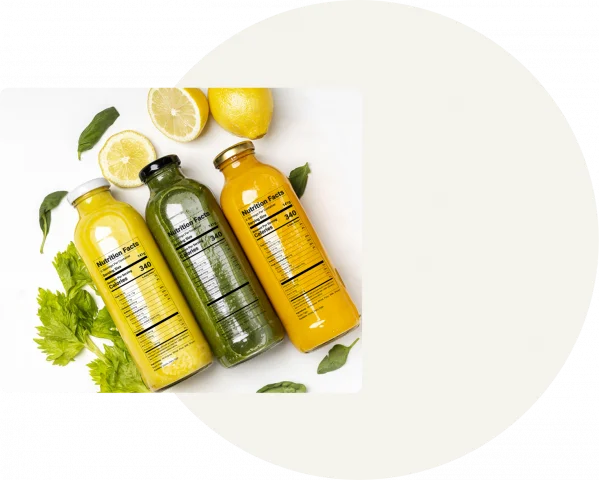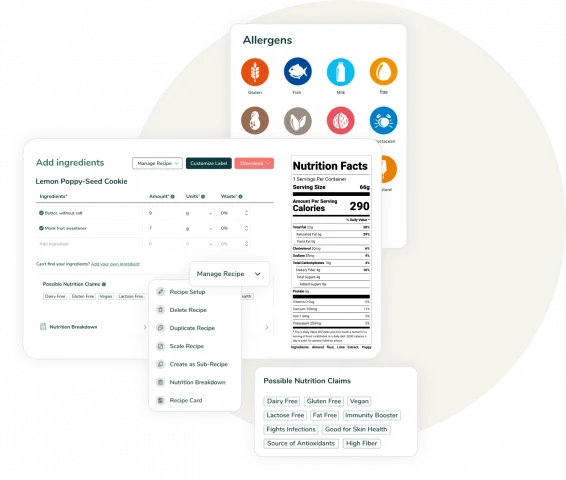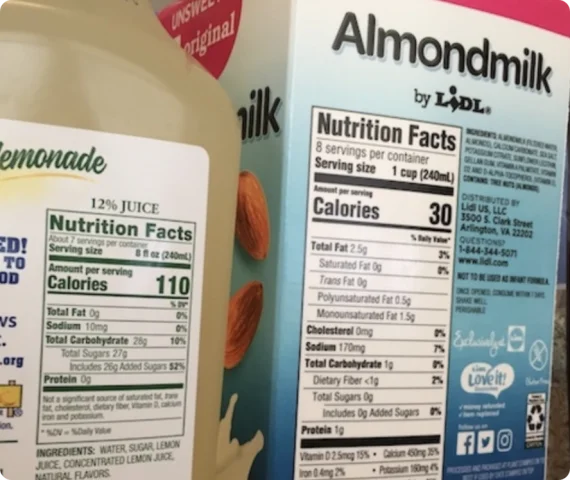Food Manufacturers
What is Label in the Food Industry?
Food labels can be found on both packaged and unpackaged foods. They provide information about the food product, including the name of the food, the ingredients, the nutrition information, and any allergy warnings. Food labels are regulated by the Food and Drug Administration (FDA) in the United States. Food manufacturers are required to place food labels on their products.
Food labels are important because they provide consumers with information about the food they are buying. Food labels can help consumers make informed choices about the foods they eat. For example, food labels can help people with allergies or other dietary restrictions to avoid foods that contain ingredients that they are allergic to or cannot eat. Food labels can also help people to make healthier choices by providing information about the nutrients in a food product.
Some food manufacturers use claims on their food labels to promote their products. These claims can be about the health benefits of the food, such as “low in fat” or “high in fiber.” Claims on food labels are regulated by the FDA. Food manufacturers must have scientific evidence to support any claims they make on their food labels.

Food Manufacturers & Food Labeling
As a food manufacturer, it’s important to stay ahead of the competition by offering products that are well-labeled and nutritious. Food labels provide valuable information about the contents of a food product, and can help convince customers to choose your product over others.
Food Label Maker can help you create custom food labels that are both informative and attractive. In addition, you can hire a nutrition expert where they can help you in much more than just creating your food label. They can co-develop your product, reformulate your recipe if needed, write food claims or label verifications, and much more… Food nutrition labels are a necessary part of any food label, and must be accurate and up-to-date.
When it comes to food labels, size does matter – especially when it comes to catching a shopper’s eye. Food manufacturers know this and often use larger label sizes and more eye-catching designs to attract customers. However, there are also strict FDA standards that food labels must meet in terms of content and format. This can make it a challenge for food manufacturers to create labels that are both informative and visually appealing.

By using Food Label Maker, you can overcome this challenge. Food Label Maker allows you to easily create custom labels that meet all of the FDA’s requirements. Plus, it gives you the flexibility to experiment with different designs and sizes to find what works best for your products.
With these tools, you can create labels that are both informative and visually appealing.
Food Label Maker is an online tool that allows users to create and print custom food labels. It offers a wide range of features, including the ability to create nutrition labels, ingredient lists, and allergen statements.
We offer a cost-effective solution for food manufacturers, as it eliminates the need to hire a separate labeling company or purchase expensive software. Additionally, Food Label Maker offers nutrition expert assistance to help users create professional-looking labels. Food manufacturers can use Food Label Maker to create nutrition labels for their products, which are required by law in many countries. Nutrition labels provide consumers with important information about the food they are eating, such as the amount of calories, fat, protein, and carbohydrates.
Food manufacturers can also use Food Label Maker to create allergen statements for their products. Allergen statements must list all of the ingredients that may cause an allergic reaction, as well as any food allergens that are present in the manufacturing process. This information is critical for consumers with food allergies, as it allows them to make informed decisions about what products they can and cannot eat. Food Label Maker is a valuable tool for food manufacturers of all sizes, as it allows them to create custom food labels quickly and easily.

International Food Labeling Standards
We all know that food labels can be confusing. There are so many different terms and abbreviations, it’s hard to keep track of what everything means. But why should you pay close attention to every detail while creating a food label as a business owner?
Food labels are an important source of information for consumers. They provide essential data about the food product, including its nutritional content, ingredients and allergens. Food manufacturers are required to comply with strict labeling standards in order to ensure that consumers have accurate and up-to-date information about the products they purchase.
The food labeling standards are set by the Food and Drug Administration (FDA) in the United States, and enforced by the Consumer Protection Agency (CPA). The FDA defines what information must be included on a food label, and sets guidelines for how that information should be presented. The CPA is responsible for ensuring that food manufacturers comply with the FDA’s labeling requirements.
There are a few key things to look for when checking food labels:
- The name of the product: This should be prominently displayed on the front of the packaging.
- The ingredients list: This should be included on all food labels, and must be listed in order of greatest to least quantity by weight.
- The nutrition facts panel: This should be included on all food labels, and must include information on calories, fat, cholesterol, sodium, carbohydrates, protein and fiber.
- The allergen information: If a food product contains any of the eight major allergens (milk, eggs, peanuts, tree nuts, fish, shellfish, soy and wheat), this must be clearly stated on the label.
It is important to remember that the claims made on food labels are regulated by the FDA. This means that a food product cannot be labeled as “healthy” or “low fat” unless it meets certain criteria. Claims such as “natural” or “organic” are not regulated by the FDA, so it’s up to the consumer to decide what those terms mean.
When it comes to food labels, knowledge is power. By understanding what information is required to be listed on a food label, and what claims are regulated by the FDA, consumers can make informed choices about the products they purchase.
